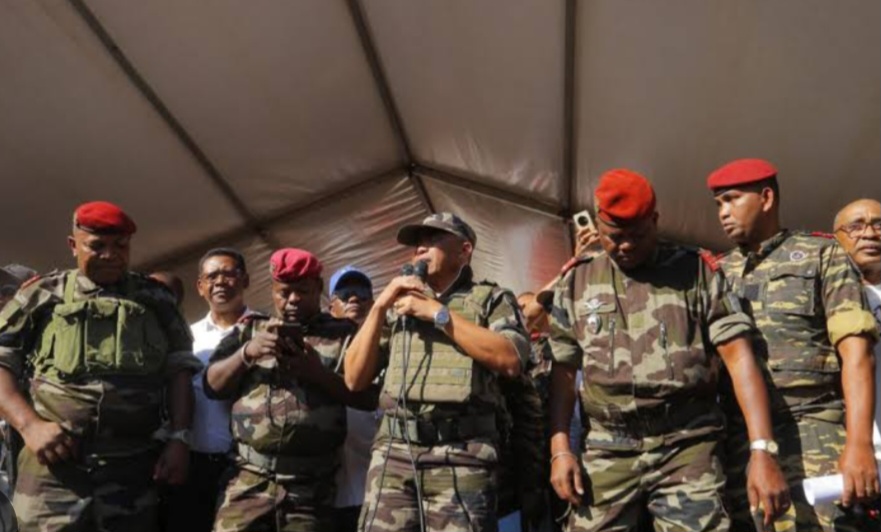
Esther Imonmion
An elite military unit in Madagascar says it has seized power from President Andry Rajoelina following weeks of youth-led protests that have rocked the Indian Ocean island nation.
Standing outside the presidential palace on Tuesday, CAPSAT chief Colonel Michael Randrianirina announced that the military would form a transitional government and organise elections within two years. He also suspended key democratic institutions, including the electoral commission.
“We must respect the demands of the youth because the movement was created in the streets,” Col Randrianirina said, referring to the Gen Z-led demonstrations that have defined the unrest.
Thousands of jubilant troops and civilians filled the streets of the capital, Antananarivo, waving national flags to celebrate what appeared to be the end of Rajoelina’s rule.
CAPSAT — the Personnel Administration and Technical and Administrative Services Corps — is the country’s most powerful military unit. It had supported Rajoelina during his 2009 rise to power but switched sides to back the protesters last Saturday.
Despite the military’s declaration, Rajoelina’s office denounced the events as an “attempted coup d’état” and insisted the president remained in charge. However, Madagascar’s Constitutional Court has named Col Randrianirina as the country’s new leader.
Rajoelina’s exact whereabouts remain unclear. The president said he was sheltering in a “safe place” after what he described as an attempt on his life by “military personnel and politicians.” CAPSAT has denied any involvement in such an attack. Unconfirmed reports suggest Rajoelina may have been flown out of the country aboard a French military aircraft.
Speaking to the BBC, Col Randrianirina described Madagascar as “a country where chaos reigns right now. Chaos because there’s no president — he’s gone abroad.”
The protests, which began more than two weeks ago, were initially sparked by chronic water and power cuts but quickly grew into a broader movement against unemployment, corruption, and rising living costs.
Clashes between protesters and security forces have left at least 22 people dead and more than 100 injured, according to UN figures. The Malagasy government has disputed those numbers, calling them “rumours and misinformation.”
Rajoelina, an entrepreneur and former DJ, first took power in 2009 at age 34 — then Africa’s youngest leader. After a four-year rule, he returned to office following the 2018 election, but his popularity has waned amid corruption allegations and economic hardship.
On Tuesday, lawmakers voted 130 to one (with one blank ballot) to impeach Rajoelina for “abandonment of post,” even as he tried to dissolve the national assembly to prevent the move. Members of his own party, IRMAR, supported the impeachment, though the president has rejected the vote as “null and void.”
The African Union (AU) condemned the military’s intervention, warning against “any attempt at unconstitutional changes of government.” French President Emmanuel Macron described the situation as “greatly worrying,” while the US State Department urged all parties “to pursue a peaceful solution in line with the constitutional order.”
Madagascar, home to about 30 million people, remains one of the world’s poorest nations, with roughly 75% of its citizens living below the poverty line, according to the World Bank.
